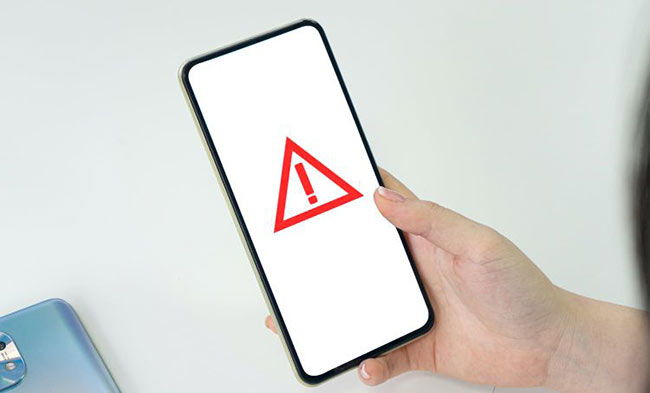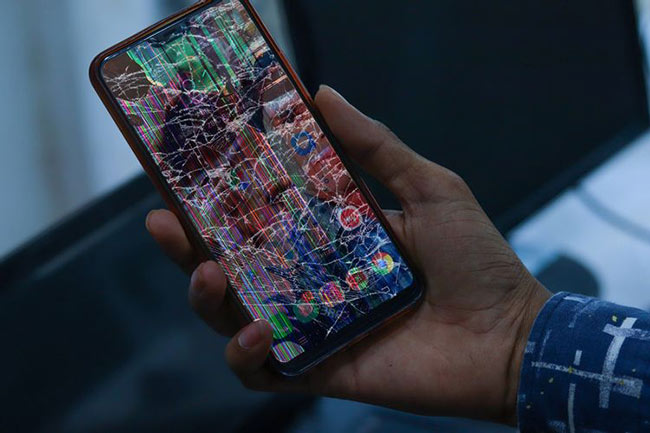Android malware is a potential threat. If any dangerous variants find their way into your smartphone, they can cause massive damage. Malware can steal personal information, provide you with an annoying amount of advertising, and consume a lot of your smartphone’s resources.
The most common way to prevent Android malware is to use an antivirus application. But are anti-virus applications really necessary? Do they protect your Android device from malware? The answer will be in the following article of Quantrimang.com.
How most Android antivirus apps work

To know if you need an antivirus application, it is important to understand how most antivirus applications work. Surprisingly, things are not as complicated as you think.
In a 2019 report by AV comparatives, the security research firm detailed some of the most popular Android antivirus apps. The conclusion is the same as what a lot of security experts have suspected – a large number of popular antivirus apps for Android do absolutely nothing to scan apps for malicious behavior.
Most antivirus apps simply use a whitelist to compare them with apps you have installed on your smartphone. Any apps that aren’t from a whitelisted vendor will be flagged as potentially malicious.
Other tools use blacklists. They scan your phone to see if you have any of the apps on this list installed. Once any software is found, they will be flagged for uninstallation.
While this sounds useful, from a practical standpoint it offers little or no protection. The list that most of these so-called antivirus apps use to scan smartphones isn’t usually good enough. Since new malicious apps are constantly springing up, the previously compiled list of malicious apps is not an effective solution.
According to a Statista report from March 2020, about 482,579 Android malware samples were posted to the Internet each month. So the average is 16,000 malware per day – a number too unrealistic to track.
This is why even if these antivirus providers update the list, it is still not comprehensive enough. According to the statistics, there could be thousands of malicious apps that have not been detected at any given time.
These apps can wreak havoc on your phone, while anti-virus software doesn’t even know it. In the end, they give you a false sense of security, which catches your guard off guard.
Antivirus apps can harm Android smartphones

If you have an antivirus app installed on your Android smartphone, an inaccurate sense of security might be the least of your worries. Most antivirus apps will just sit on your phone, doing nothing but eating up your phone’s resources and negatively impacting device performance in many ways.
Due to the use of fancy animations, running in the background, and implementation of real-time components, anti-virus applications can drain the device’s battery. Of course, because they have to be constantly running, they will also constantly compete for RAM with other running applications.
Depending on the antivirus application you use, the amount of resources consumed can increase exponentially, even enough to slow down the phone.
Next comes the incorrect warning status. Many anti-malware applications sometimes flag legitimate apps as malware. Some tools even take action on these supposedly malicious apps to “protect the user”.
If you download popular anti-virus applications made by unscrupulous vendors, you could give malware the key to opening the door to attack. Malware disguised as antivirus is often one of the most dangerous types of malware. You can become a lucrative prey, by granting it all admin rights and privileges.
This allows them to skip asking the user to click OK, so the rogue antivirus is constantly running in the background, performing malicious actions, and even serving ads. Instead of doing its job, some of the antivirus apps on the market do harm to the device.
Android antivirus vendors often exaggerate the truth about malware
According to Statista, Android is by far the most popular mobile operating system in the world. With a 73% market share, even Apple’s iOS is outdone. Being the most popular mobile computing platform comes with a price tag. Every month there is some news that Android malware is sure to destroy your smartphone.
While most of these reports are fact-based, they overemphasize the real danger of malware infection. Antivirus app vendors often exaggerate this news, making a malware infection seem like a pandemic.
In fact, while Android malware is still a potential threat, as long as your security settings are up to date, your chances of getting infected with malware are usually lower than you think. If you’re doing it right, Android’s security measures neutralize the need to use a third-party anti-malware app.
The Android operating system has come a long way since its early days of vulnerability. While it’s still a favorite target for malicious apps, Android is, in essence, capable of keeping you safe from most malicious apps.
Inbuilt anti-malware features of Android

One of the most significant malware risks to Android smartphones is that users are messing around with the default security rules on their devices. Quite a few Android users change their security settings, inadvertently creating space for malicious apps to infiltrate.
Most Android malware gets into smartphones through suspicious apps. While some of these apps are sometimes sneaked into the Play Store before inspection, Google has a robust system in place to identify and remove these types of apps.
By default, Android does not allow users to install apps from other sources. If you only install apps from the Play Store, you already have a strong layer of security against malware.
Unfortunately, many people choose to install apps from other sources. To be fair, there are plenty of good reasons you might want to install apps from other sources. However, sticking only with apps on the Play Store will help you benefit from Google’s robust security checks on apps.
Massively destructive malware can’t last long on the Google Play Store. Google regularly scans apps for malware whenever they are uploaded. There is also a rigorous human review process to scrutinize any apps that appear problematic.
From time to time, you may hear about some software in the Play Store that is collecting user information or being flooded with ads. Google has sophisticated tools to detect and respond to these threats quickly.
Ideally, an effective anti-malware application can scan the phone for malicious behavior, speed up the phone, improve security measures, and protect data. Much of what’s being marketed as anti-malware apps doesn’t do this. On the other hand, the Android operating system, backed by security tools like Play Protect, excels in this regard.
Let Play Protect keep you safe!

Play Protect is built to effectively fight the latest malware, using sophisticated algorithms that can learn and adapt to new threats. Thanks to proprietary access, Play Protect can drill down into your smartphone to detect malicious behavior and take necessary actions.
Malicious apps will even be uninstalled from your device without your explicit permission.
That’s not all! Google’s Play Protect can also monitor network connections and the URLs you download, then issue an alert whenever a website or network connection is unsafe.
No third-party Android anti-malware app has as many access and resources as Play Protect. According to digital security research firm XYPRO, Google’s Play Protect is probably the most effective “malicious behavior scanning” app available on Android.
Do you need anti-virus software?
The big question is: If the Android operating system has most of what it takes to protect your smartphone, is it worth the risk of sacrificing device security for things that hardware vendors can’t afford? Third-party anti-malware software promises?
While there are indeed some quality anti-malware apps on the market from reputable companies, the Android operating system comes equipped with most of what you need to stay safe. If you have Android antivirus apps on your device right now, remove them if you’re in doubt.
Source link: Why Uninstall Antivirus on Android Devices
– https://techtipsnreview.com/






